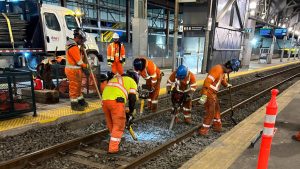Toronto District School Board deliberations on whether it will remain a construction employer bound to unionized trades for its ICI work are going down to the wire.
The board deferred a decision on the matter at a special meeting on June 26 and will revisit it at another special meeting on July 2. July 3 is the deadline for the board to make a decision on its construction employer status under Bill 66.
If the board decides to become a non-construction employer, as defined in the Labour Relations Act, its collective agreement with the Maintenance and Construction Skilled Trades Council (MCSTC) would be terminated and the board would become open shop in the ICI sector.
The school board has been bound to the MCSTC since 1998. As explained in a staff report to the board trustees, the current collective agreement states that all work under $1.725 million must be performed by MSCTC-aligned contractors. In 2017-2018, board spending subject to MCSTC jurisdiction amounted to $192 million.
MCSTC members include the carpenters, insulators, boilermakers, bricklayers, sheet metal workers, painters, tile and terrazzo workers, electrical workers, plumbers and pipefitters, sprinkler fitters, millwrights and others.
The staff report offered no recommendation to the trustees, indicating the options were to either take no action and thus allow the provisions of Bill 66 that deem the board and other public entities to be non-construction employers to take effect, or to opt out.
The report cited various studies that have estimated that savings in an open-tendering system could be between 2 per cent and 30 per cent.
“Competitive bidding on construction projects involves inherent uncertainty for each bidder. There are numerous interrelated factors that go into any particular bid. As a result it is difficult to assess the potential savings from becoming a non-construction employer,” the report stated.
The report noted that in other jurisdictions where public governments had not opted out, there had been lawsuits initiated.
In addition, the report warned that programs through which students were undergoing apprenticeships would be jeopardized. There are currently 37 students in the programs, including 12 carpenters in training, seven painters and five plumbers.











Recent Comments
comments for this post are closed